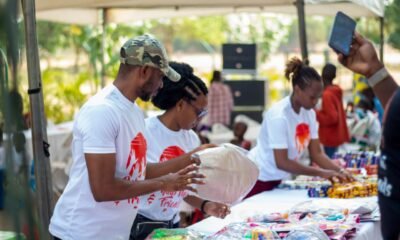Profile
DSP Samuel Opoku, the man at the forefront of ‘The Youth and Crime Campaign’ of Ghana Prisons
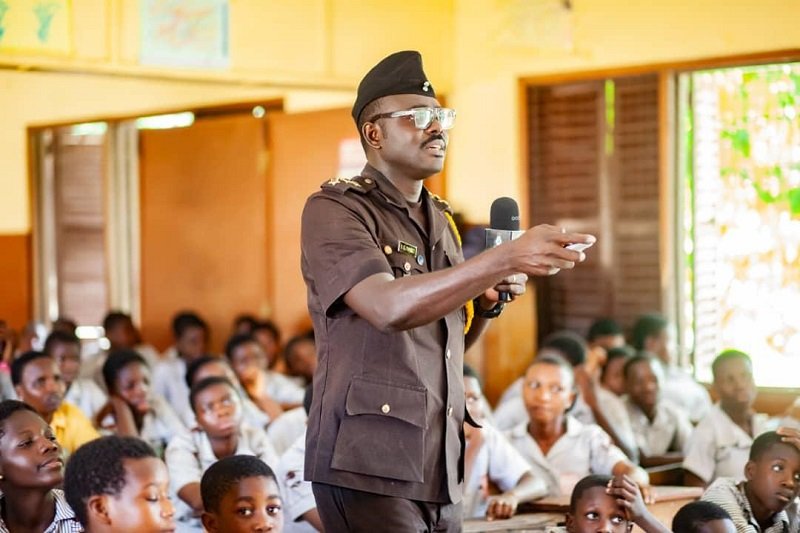
DSP Samuel kofi Opoku interacting with the students
“The development of the youth must be very crucial to every country. It is the reason why every government must consider policies to protect them because they represent the future. They are the generation to take over from older ones.”
The above quote represents the view of a vibrant young man, Mr Samuel Kofi Opoku, a Deputy Superintendent of Prisons (DSP) of the Ghana Prisons Service (GPS).
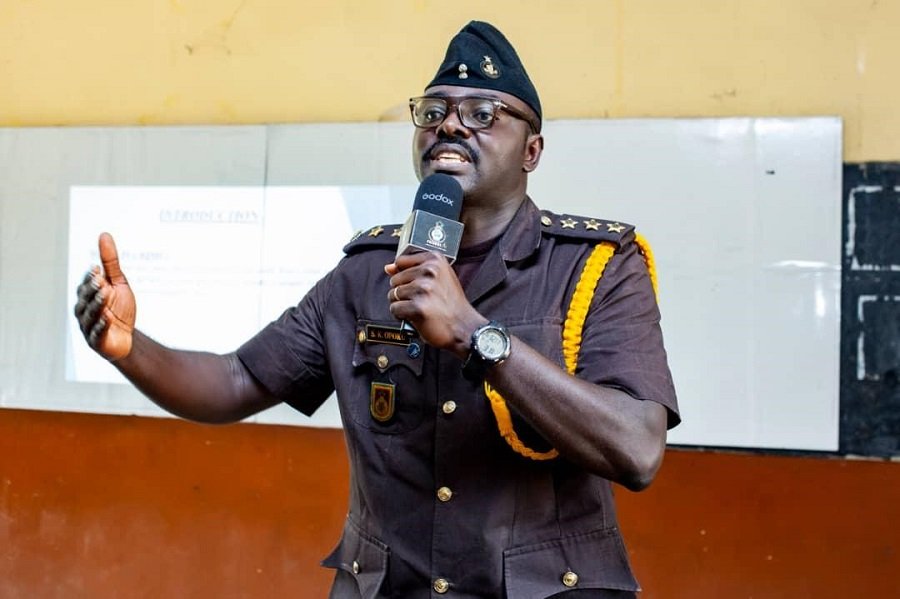
DSP Opoku is stationed at the Service’s Headquarters at Cantonment and has become the face of the ‘The Youth and Crime Campaign,’ an initiative of the Ghana Prisons Service.
With his passion for youth development, DSP Opoku has welcomed this responsibility thrown at him by his superiors and is wholeheartedly committed to it.
The ‘The Youth and Crime Campaign,’ seeks to address the cause of the youth’s involvement in crime and also, contribute in reducing their involvement in crime.

It appeared defunct as it witnessed little or no activity but recent effort by the Service has breathed life into the campaign and seem to be transforming the lives of the youth in schools, churches and the GPS.
DSP Opoku’s association with the project started after joining the Service in January 2017. He was invited by a Charismatic Church at Kasoa in the Central region to have a talk with the members about the work of the GPS.

What was supposed to last for 30 minutes was stretched for over three hours.
After that, he felt the ignorance of the youth regarding some of the crimes around them and life in and after prison.
The outcome motivated him to accept the challenge of the campaign powered by the Public Relations Unit of the Service in 2022.
“We visit schools, churches and educate them about crimes, juvenile detention and the Juvenile Justice system in the country. Among the schools and churches visited were Labone Senior High School, Nugs Career Fairs, Rangoon Basic School, Kinbu Secondary School, Presbyterian Church Osu, and Mampong School for the Deaf.
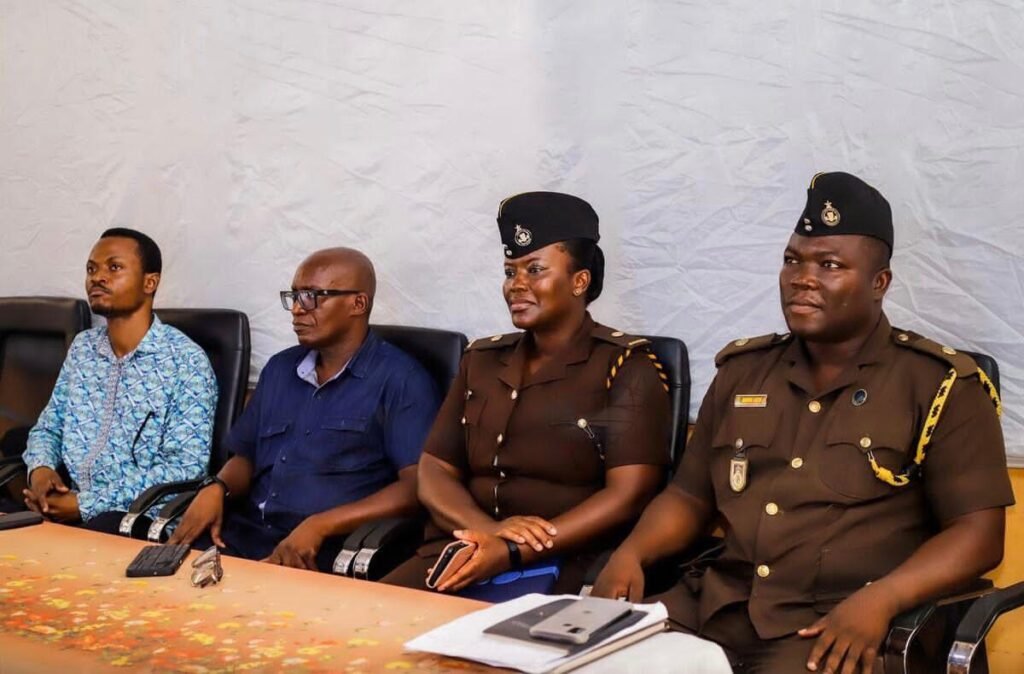
Challenges
In all of these, language appear to be the biggest challenge faced by the campaign team because some of the groups or individuals encountered who were not conversant with the English language, had to be attended to differently in other languages.
“That notwithstanding, we are able to educate children about crime and its consequences on individuals whether young or old. That has gone a long way to reduce the child involvement in crime stories.”
It is the wish of DSP Opoku that they would be able to cover a lot of remote areas to benefit from the laudable initiative.
And in all of these, he hailed the impact of the Director General of the GPS, Mr. Isaac Kofi Egyiri, and Prisons Directorate for their immense support over the years for championing this course. And also Dr. Vladmir Antwi Danso for encouraging and supporting financially to the Prisons Service.
The campaign falls in line with the Ghana Prison Service’s mandate for reformation and integration into the society. This is done by taking inmates through various skills training at the classrooms at the various prison centres.
But one important thing the campaign has lacked is corporate support.
In his view, it was important for the corporate sector especially to support the campaign to reduce crime among the youngsters to create a crime-free environment for businesses to thrive.
Passion
Before joining the GPS, he had stints with Radio Windybay in Winneba in the Central Region as a student news anchor. He also worked as a talk show host and producer, Editor for the Profile newspaper, Reporter and Producer at Channel R, Correspondent for the Ghanaian Observer and Daily Guide newspapers.
He taught English language and Literature at the Aggrey Memorial Senior High School in Cape Coast, Mercy Islamic Senior High School and St. Dominic Senior High School in Kwahu- Pepease.
He later coached the female basketball team of the Aggrey Memorial Senior High School to win their first ever trophy at the 2013 edition of the Sprite Ball Competition.
Life
DSP Opoku started his primary school education at the Presec Staff School (Legon) and continued to Tema Senior High School where he studied General Arts.
He holds a Diploma in Journalism and a Bachelor of Arts in Communication (Public Relations) from the University of Media Arts and Communication (UNIMAC) formerly Ghana Institute of Journalism (GIJ).
He holds a Bachelor of Arts degree in English from the University of Education, Winneba, Certificate in Radio Broadcasting, Certificate in Advance Monitoring and Evaluation from the Ghana Institute of Management and Public Administration.
Work
He was enlisted into the Prison Service in January, 2017 as a Cadet Officer and commissioned as an Assistant Superintendent of Prisons (ASP) on March 23, 2018 after 18months of paramilitary training at the Prison Officers Training School in Accra.
He first worked at the Monitoring, Research and Evaluation office at the Prisons Headquarters but was transferred in February 2019 to the Commercial Unit at the Prisons Headquarters and in May 2020 to the Public Relations Unit at the Prisons Headquarters.
After a hard day’s work, DSP Opoku relaxes by listening to music, writing and playing basketball.
He is the last among three siblings to Mr. William Freeman Opoku and Madam Veronica Naana Essien from Akim- Oda in the Eastern region.
Advice
DSP Opoku advised the youth to stay focused to realize their dreams by taking their studies very serious to become responsible and productive citizens.
The Ghana Prisons Service as a key stakeholder of the Criminal Justice System of Ghana contributes to the maintenance of internal security by maintaining an efficient, humane, and safe reformatory penal system operated within the laws of Ghana.
The Service is committed to undertaking the safe custody, humane treatment, reformation, rehabilitation, and reintegration of inmates to make them responsible, productive, and law-abiding citizens to ensure public safety.
By Linda Abrefi Wadie
Profile
Prof. Raphael Nyarkotey Obu …first Natural Medicine Lawyer in Africa

Prof. Nyarkotey
Professor Raphael Nyarkotey Obu, a distinguished naturopathic Professor and an esteemed advocate for traditional and complementary medicine, has made history by becoming the first naturopath in Africa to be called to the Gambia Bar.
Known for his exceptional dedication to advancing healthcare through both legal and technological frameworks, Prof. Nyarkotey is pioneering a new era in traditional and naturopathic medicine.
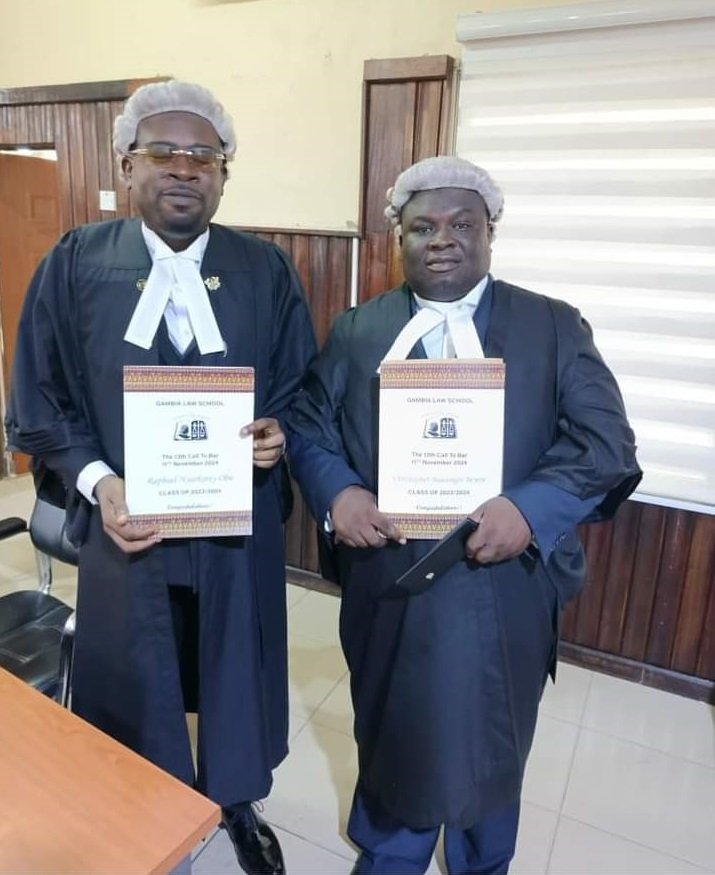
At just 39 years old, he is already transforming healthcare across the continent and using his legal expertise to shape a regulatory framework for traditional and complementary medicine, bringing a new level of professional credibility and public trust to the field.
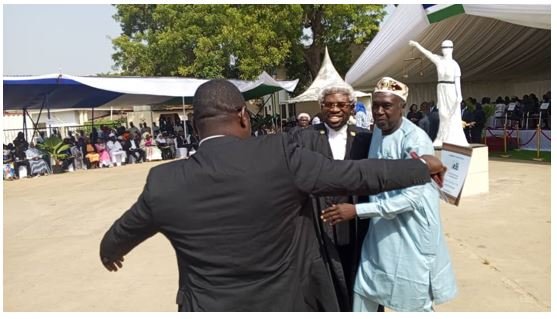
In addition to his recent legal accomplishment, Prof. Nyarkotey serves as the president of Nyarkotey University College of Holistic Medicine and Technology, Ghana’s first naturopathic medical school, which he founded to provide education in holistic health and technology.
His leadership extends further: he led a team to develop Ghana’s first National Occupational Standards in naturopathy and holistic medicine at the HND and BTech levels under the Commission for Technical and Vocational Education and Training (TVET).
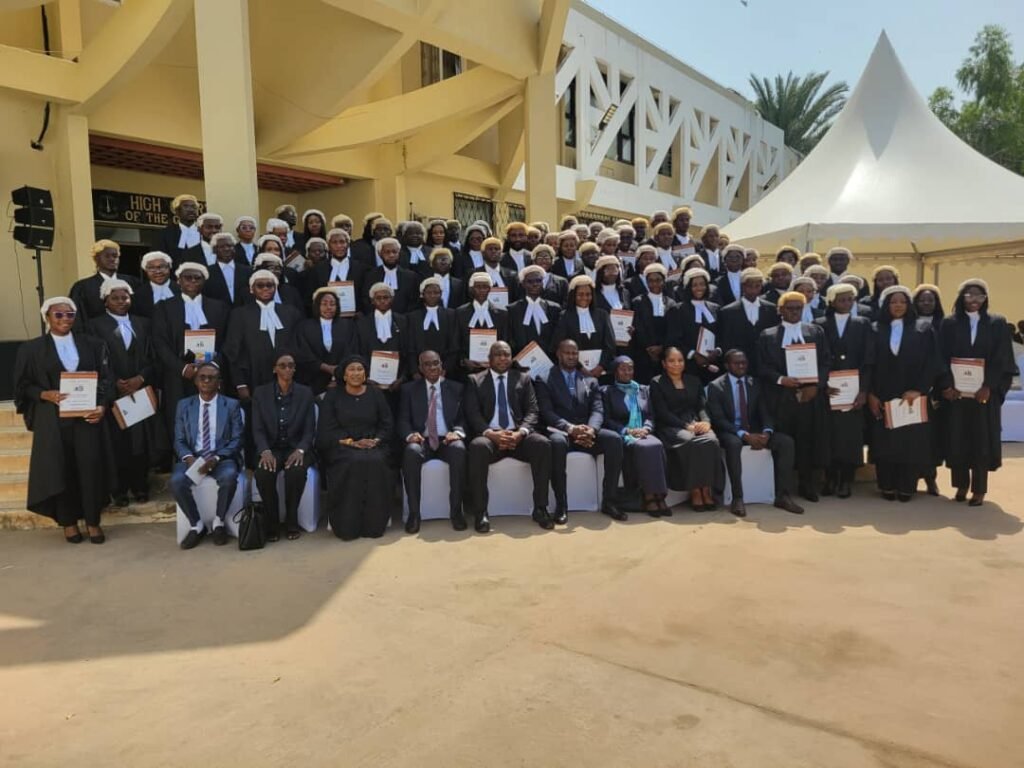
These achievements, along with his work as General Secretary of the Ghana Alternative Medical Practitioner Association (GAMPA) and as part of the research advocacy team for the World Naturopathic Federation in Canada, underscore his commitment to raising standards and advancing the professional development of alternative medicine across Africa.
In the Gambia, Prof. Nyarkotey has supported traditional healers and pioneered evidence-based naturopathic medicine. He also used his legal training days to raise awareness of Gambia’s forgotten herbs and made them popular through his scientific writing.
He has authored so many legal commentaries on the regulatory legislative framework on traditional and naturopathic medicines in the Gambia and Africa.
“With my legal qualifications, I aim to work with various African governments and health organisations to create a unified framework that supports traditional and complementary medicine,” said Prof. Nyarkotey Obu.
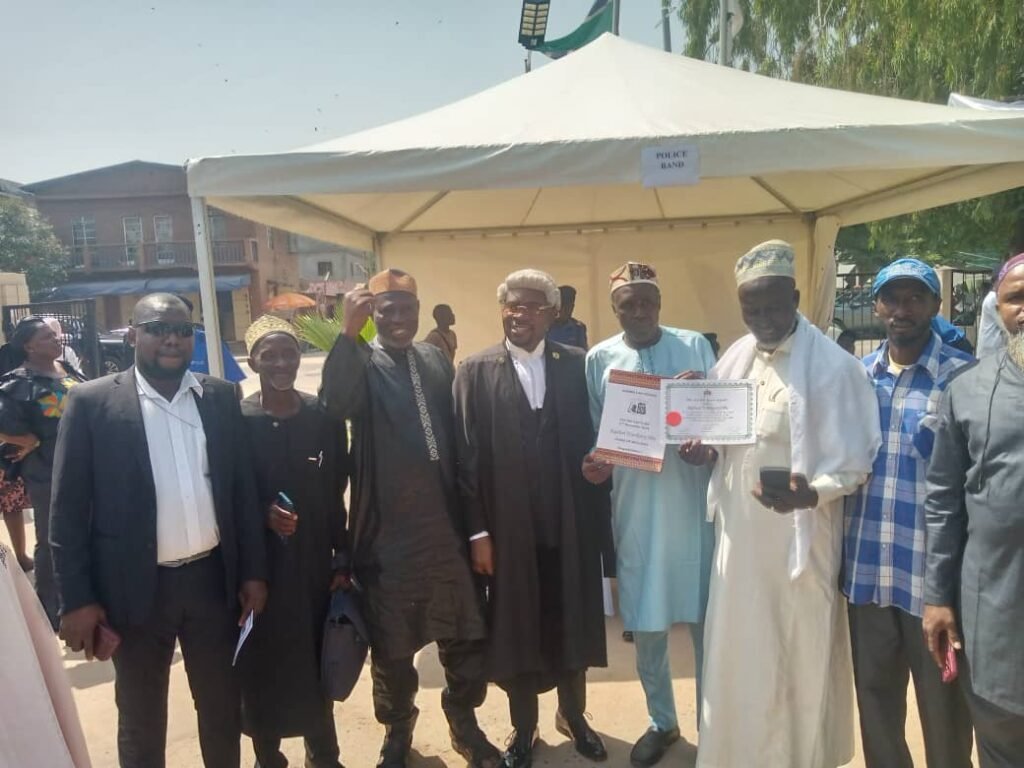
“There is a growing demand for these practices, yet the lack of regulation often leads to misuse and public skepticism. My goal is to bring about a change in how these treatments are perceived and implemented, safeguarding public health and honouring African traditions,” he added.
Prof. Nyarkotey is not only a renowned Naturopath, but also doubles as a Chartered Health Economist and Chartered Management Consultant.
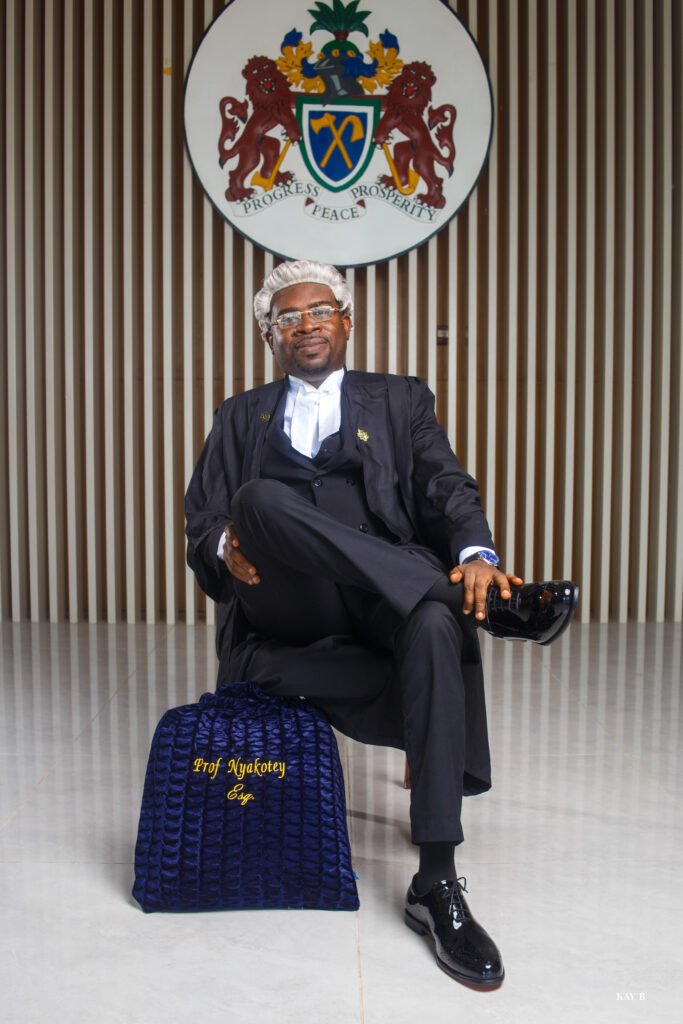
He is also pursuing a second MPhil/PhD in Law and Development at the Institute of Development and Technology Management (IDTM) in Cape Coast, Ghana.
His research focuses on medical negligence and Alternative Dispute Resolution (ADR), an area of critical importance for African healthcare. By promoting ADR, he aims to provide pathways for fair, non-litigious resolutions, protecting both practitioners and patients within traditional medicine.
Prof. Nyarkotey is also at the forefront of exploring Artificial Intelligence (AI) in traditional and naturopathic medicine, investigating ways AI can revolutionise the delivery and personalisation of natural medicines.
This approach promises new, tech-enhanced treatment options for underserved communities, enabling traditional healers to leverage data-driven insights for better patient outcomes.
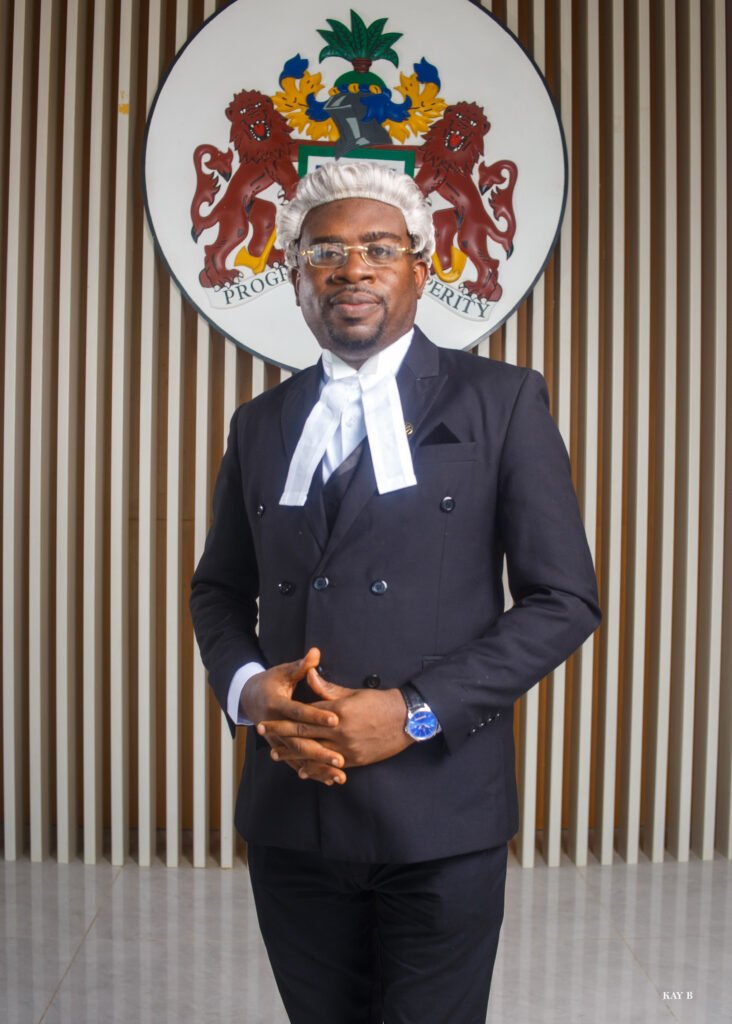
As a deeply committed Christian, Prof. Nyarkotey balances his professional pursuits with a strong personal faith. His determination and leadership have made him a trailblaser, setting a new standard for traditional and naturopathic medicine in Africa.
His upcoming consultancy firm aims to unite healers and legal experts, offering regulatory and technological support, as well as legal protection for traditional healers.
Prof. Nyarkotey’s journey, from founding Ghana’s first naturopathic school to joining the Gambia Bar, reflects his drive to secure a place for traditional and naturopathic medicine in Africa’s healthcare landscape, and building a future where it is both accessible and regulated. His visionary leadership is helping ensure that traditional medicine will be a credible, trusted, and vital part of healthcare across Africa.
Profile
Jacqueline Antwi-Danso …NSERC Banting Postdoctoral Fellow at the David A. Dunlap Department for Astronomy & Astrophysics
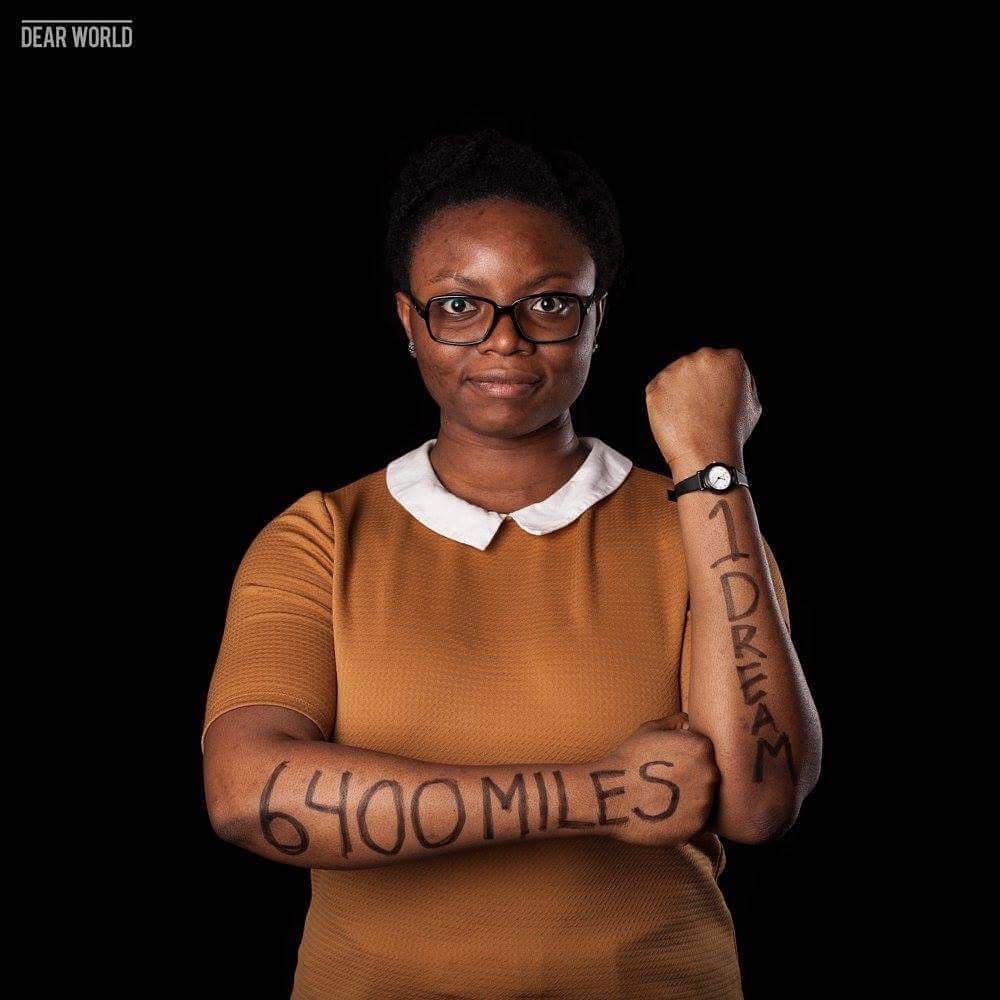
In the 1990s, astronomers discovered two distant, massive galaxies that had completely stopped, or quenched their star formation. The discovery marked a complete shift in everything astronomers thought they knew about how galaxies formed.
Massive galaxies like the Milky Way took several billion years to form. But those newly discovered galaxies did so in just a fraction of that time.
“The discovery meant that these galaxies were older than the age of the universe, which is physically impossible,” says Jacqueline Antwi-Danso, the NSERC Banting Postdoctoral Fellow at the David A. Dunlap Department for Astronomy & Astrophysics.
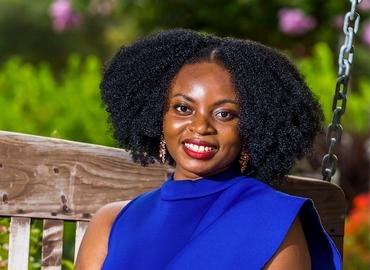
“When we look at the formation histories of these distant quenched galaxies, the observations suggest that they formed too quickly and too early compared to what we see in cosmological simulations.”
Antwi-Danso is tackling one of astronomy’s biggest challenges in her search to find the earliest distant quenched galaxies in the universe. She is particularly interested in how these galaxies formed and when they stopped forming stars.
Astronomers have discovered several more distant, quenched galaxies at increasingly earlier periods in the universe’s history. These galaxies are more massive than the Milky Way and yet formed within a billion years of the Big Bang (which happened nearly 14 billion years ago). In other words, they formed their stars extremely rapidly, unlike any galaxy observed in the present-day.
So, what does this all mean for astronomers? The extreme star formation processes implied by these observations of distant quenched galaxies are uncomfortably close to the limits permitted by galaxy formation physics. Therefore, trying to understand these objects in more detail is a high priority research area for astronomers.
Massive galaxies like the Milky Way have up to a trillion stars and are characterised by luminous, spiral-like arms of active star formation. Meanwhile, distant, quenched galaxies are composed of old stars and look like relics: small orange-red blobs. This is because their light has been “stretched out” to infrared wavelengths due to the expansion of the universe, which also makes them fainter and harder to spot.
At U of T, Antwi-Danso is building on significant findings from a study she participated in as a PhD student at Texas A&M University. Using the 8-metre telescope at the Gemini South Observatory based in Chile, the FENIKS collaboration surveyed large areas of the sky to increase the chances of finding these rare massive galaxies. They designed and installed two new imaging filters on the telescope to push the boundary of what was possible with ground-based infrared telescopes. The survey led to two critical discoveries.
The first was the identification of two new distant quenched galaxies. The discovery confirmed existing knowledge about the formation histories of distant galaxies, “namely, that these galaxies form too early and too quickly based on what theory predicts,” Antwi-Danso explains.
The study also highlighted that astronomers can reliably use ground-based telescopes to observe distant quenched galaxies as far back as 12.5 billion years into history of the universe. To detect them at earlier times than this, space-based data is required.
Additionally, astronomers are rethinking long-standing models of galaxy formation as they observe distant quenched galaxies with supermassive black holes at their centers emitting energetic radiation.
This is important, Antwi-Danso says, because the differing models for light emission from stars and supermassive black holes can affect estimates of the physical properties of these distant galaxies.
As more questions arise, there is an increasing need to ensure the accuracy of the physical properties of distant quenched galaxies derived from modeling their observations. Fortunately, there have been significant technological advancements to address this need.
Harnessing the power of space-based technology
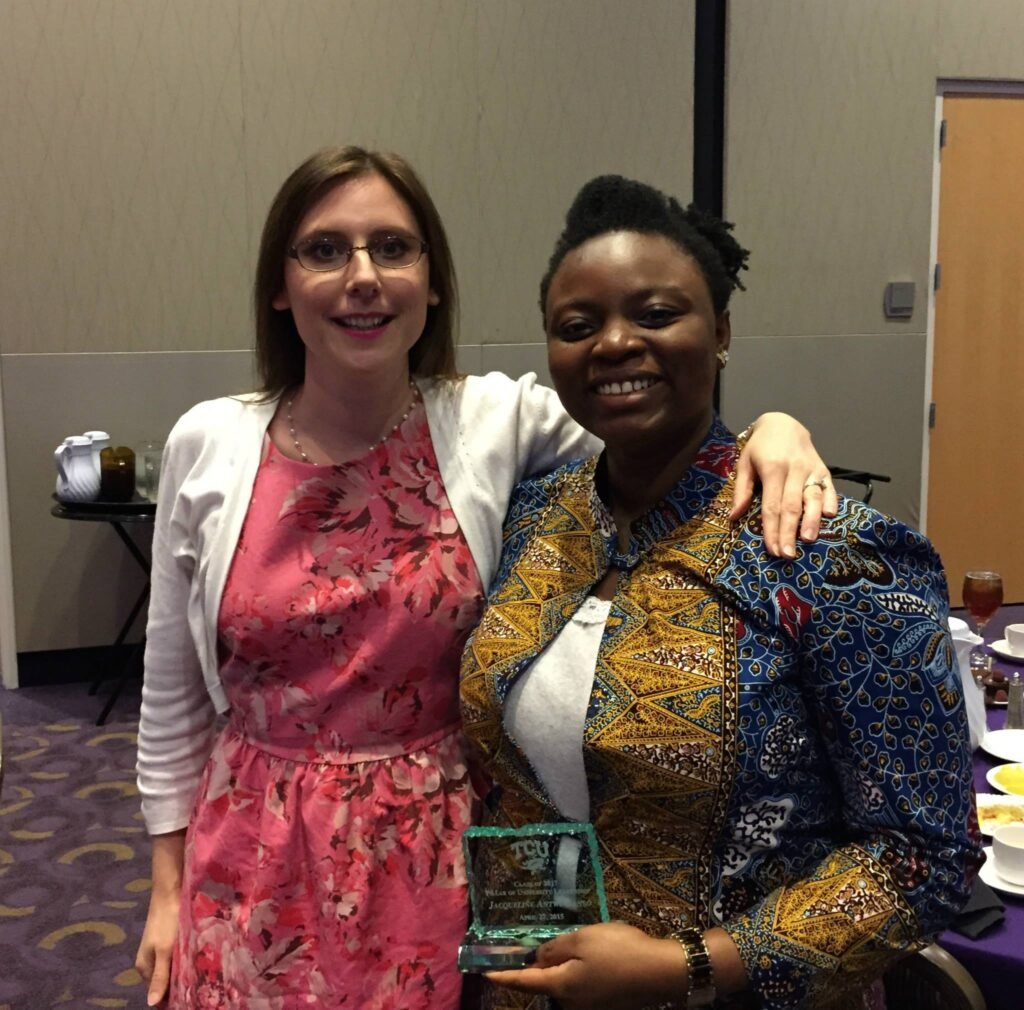
The next stages of Antwi-Danso’s research involve further exploration of those two distant galaxies she discovered from Chile. To do so, she’s leveraging the power of the James Webb Space Telescope (JWST).
Distant galaxies are hard to detect because their emitted light is shifted to infrared wavelengths, where the earth’s atmosphere blocks most of the light. The sky in the infrared is about 10,000 times brighter than the typical distant massive galaxy. This makes it extremely difficult to detect the most distant quenched galaxies using ground-based telescopes.
The JWST – which launched in December 2021 – is about 100 times more sensitive than the largest ground-based infrared telescopes and can observe galaxies in a fraction of the time of its predecessors.
In fact, it has doubled the number of spectroscopic observations of the most distant, quenched galaxies within only two years of operation. Before its launch, astronomers had spectra of only 35 of these galaxies observed within the first two billion years of the universe’s history.
To further observe those two galaxies, Antwi-Danso will use data from the JWST to examine their spectra – the light emitted by these galaxies over a range of wavelengths – which can reveal information like chemical composition. Insights will help provide a more accurate understanding of their formation histories to compare with updated cosmology simulations, and, hopefully, offer new answers about possible tensions between theory and observations.
Additionally, Antwi-Danso is part of the Canadian NIRISS Unbiased Cluster Survey (CANUCS), a multi-institutional collaboration that uses gravitational lensing — a phenomenon where a massive object acts as a cosmic magnifying glass — to study the building blocks of the earliest galaxies.
Within that collaboration, Antwi-Danso is also a researcher on the Technicolor Survey, which employs multiple filters on the JWST’s Near-Infrared Camera to observe quenched galaxies at wavelengths that are inaccessible from the ground.
“We want to find galaxies that contain the first generations of stars, and then model their observations with galaxy formation models to infer their physical properties and star formation histories,” Antwi-Danso says.
With the technological advantages provided by the JWST to push the boundaries of distant galaxy observations, Antwi-Danso’s research will provide valuable insight into understanding how early galaxies came to be.
“We’re really excited to see where the results lead and to compare those observations with current theoretical predictions for these distant massive galaxies.”




